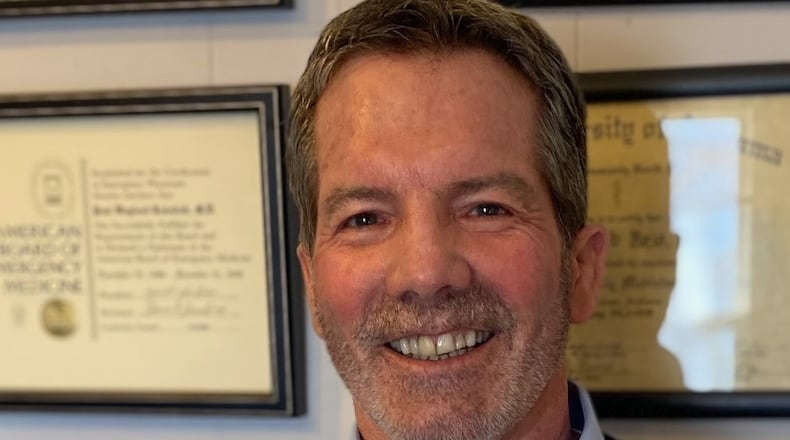“My primary background is as an emergency physician,” Kolodzik said. “Over the 25 years I’ve been practicing, I have seen patients coming into the emergency with severe complications related to diabetes and obesity.”
Since the advent of the so-called “low fat” diet in the 1970s, Kolodzik said more Americans are gaining weight and having difficulty losing it and keeping it off.
“Low-fat diets tend to be high in carbohydrates,” Kolodzik said. “One way to look at it – it’s not fat that causes you to be fat.”
Since the human body converts most carbohydrates to sugar, eating too many carbs causes rapid weight gain and blood sugar spikes. When low carb diets became popular a few years ago, it appeared they would go the way of any other diet trend. But Kolodzik said cutting carbs is the best way for people to lose weight and keep it off long term.
“I feel it’s important to be proactive and we need to focus on nutrition and lifestyle management,” Kolodzik said. “Physicians today have limited time to see patients and the reality is they are trying to manage problems with medication and treatment.”
MetabolicMD is Kolodzik’s answer to the rising obesity epidemic. He works with his patients to transform their diets and embrace a low carb lifestyle.
“When you eat carbohydrates, you are raising your blood sugar,” Kolodzik said. “If you put your focus on a lifestyle designed to keep your blood sugar in check, you will burn fat and lose weight.”
It may sound simple, but low-carb diets are often difficult to sustain over time, with high carbohydrate foods filling grocery store shelves and being served in restaurants. What sets the MetabolicMD program apart from other low-carb diets is a small device, placed on arms or abdomens, designed to monitor blood sugar continuously. These Continuous Glucose Monitors (CGM) send data directly to cell phones.
“If you eat a lot of carbs, like bread or candy, you can see your sugar spike,” Kolodzik said. “We always start by putting CGMs on people and for the first week, we tell them not to change anything,”
The idea is if people see the physical result of what they choose to eat, that feedback will help them make better choices in the future.
“The CGM is a great behavioral tool because it helps people learn about how the food they eat impacts blood sugar and weight over time,” Kolodzik said.
Over the past three years, Kolodzik has been building his business and helping people reach goals, go off medication, lose weight and get healthier.
Ben Kelley of Bellbrook is 59 years old and struggled with his weight since completing his military service in his 20′s, when he weighed 154 pounds. Over the years with the stress of owning a business and juggling three kids and their activities, he got heavier, and in early 2020, he weighed 235 pounds.
“The CGM helped me embrace low carb,” Kelley said. “I lost 60 pounds in eight months, improved my cholesterol and my blood sugar.”
Kolodzik works with his patients to slowly drop carbohydrate intake, which for some people is as much as 500 grams daily and starts them out with no more than 100 grams per day. He helps them gradually decrease to between 75-50 grams daily.
“It’s interesting because my patients never say they are going hungry,” Kolodzik said. “They can eat what they want, as long as they keep their carb intake below the limit.”
The CGM also helps people learn about insulin resistance and their patterns of eating, such as snacking in the evenings. A MetabolicMD nutrition coach also works with patients to help them recognize the triggers that cause them to make poor food choices.
“We are doing something wrong in the country and have been for years,” Kolodzik said. “Food companies want to make a profit and technology services want everyone to sit on their couches all day. For thousands of years human beings were not obese or overweight and we didn’t eat many carbohydrates. Understanding metabolic health and using the CMG as a tool can change everything for people.”
For more information, log on to https://metabolicmds.com/.
Contact this contributing writer at banspach@ymail.com.
About the Author


